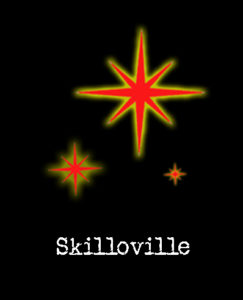Synthesis – The Things They Carried, Tim O’Brien:
Like many war stories, O’Brien presents a struggle of the human condition. The narrator is drafted into selective service with the military, attempts to dodge the draft, changes his mind, and finds himself in the thick of the war in Vietnam.
Like many people, the narrator was struggling with his life before the draft notice ever arrived. He was working in a slaughterhouse, stank of pig essence, couldn’t get any dates with girls, and he was floundering in the wake of his high school graduation. He didn’t like his position in the world but he didn’t know exactly what to do about it. He obeyed the calling, or fate, or destiny, or whatever it is, if anything, that guides the individual through their life.
Humans may experience physical, mental, social, economic, etc, phases in their lives. “The Things They Carried” details an account of the human condition, of growing up, of growing old, and of how each and every human may experience similar things on different levels and intensities. (text-to-self)
A major feature of O’Brien’s writing style is the way in which the narrator writes about the craft of writing and storytelling. By writing about writing, the narrator includes the reader in on the secret . . . the story to be told.
A connection is made with the reader. The reader may trust the storyteller as an eyewitness, a first-hand account to whatever the tale is about. In the story “Love,” years after returning from the war, Lt. Jimmy Cross visits O’Brien, they have a great conversation, and Cross, as listener to the storyteller, says: “You writer types . . . you’ve got long memories.” (27).
What Cross may not perceive is that the writer puts memory, recollection, and inclination down on the page. The paper or the electronic document make the memory tangible, but otherwise work as a prompt for the person doing the remembering to pull the shapeless memory of the mind into the reality of a well-articulated story. As O’Brien writes in the story “Spin,” “. . . as I write about these things, the remembering is turned into a kind of rehappening.” (31) and, “That’s the real obsession. All those stories.” (33) (text-to-itself)
While war and war stories may be condemned for their narrator’s recollection and participation in war, there have been many great books written about and/or during war: Crane’s The Red Badge of Courage, Vonnegut’s Slaughterhouse 5, Heller’s Catch 22, Remarque’s All Quiet on the Western Front, to name a few, but the stories are never really about war. The stories are about surviving war long enough to return to surviving civilian life. From bravery and loyalty to bureaucratic absurdity, the war story is a fixture in any culture.
As Tim O’Brien writes in “How to Tell a True War Story,” “It wasn’t a war story. It was a love story.” (81) “And in the end, of course, a true war story is never about war. It’s about . . . .” (81) The story is about whatever we interpret the meaning to be, and an overarching theme of many war stories is the narrator’s “coming of age,” and the potential for lost innocence. Each narrator must come to terms with their place on the playing field. (text-to-text)
The world as it currently exists is perhaps suffering from the “global economy” expectations of a classist system relying on mass poverty, “third-world” debt, civil wars, ancient tribal rivalries, political and religious dissent, corporate low-price leaders, inadequate health-care coverage, inadequate living and working conditions, and everyone is expected to live contentedly on their level of the social/moral food chain.
“The Things They Carried” is but a single recount of a single individual portraying a shred of his own perception and participation in history. Imagine if everyone wrote their own shred of history and the magnificence of the quilt that could be woven from the stories, those recounted fabric threads of people’s lives.
Until a utopian society is attained, the world may be destined to live in conflict, war, and dystopia. Barbarism becomes more civil, civility becomes more barbaric, and somewhere in between the contemporary human species survives. (text-to-world)
2012.3.9

